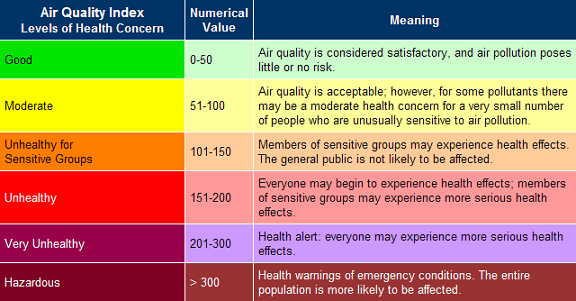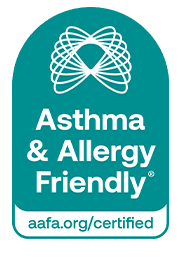Welcome to our January research update! Getting involved with research is an important way to impact asthma and allergy treatments, education, and awareness.
This month, we are highlighting clinical trials, surveys, and news on:
- Asthma
- Asthma medicine costs
- Respiratory viruses like respiratory syncytial virus (RSV) and human rhinovirus (HRV)
- Insect allergy
- Solar urticaria
- Link between viral respiratory infections and asthma risk in childhood
- Pulse oximeters in various skin tones
Note: The links below will take you to external websites.
Clinical Trials
Be Part of the Future of Asthma Care
Your experience with asthma can make a difference. A new clinical trial is exploring asthma treatments and is now enrolling participants.
Qualified candidates receive no-cost medical care, study-related medication, and potential compensation.
Help shape the future of asthma care. Click “Learn More” to see if you qualify.
Sponsored by Array Insights
Runny Nose, Cough, Congestion, Wheezing?
Learn about a clinical trial for RSV.
RSV can be a serious, life-threatening virus for high-risk adults who are 18 years or older and meet at least 1 of the following criteria:
- Moderate or severe COPD
- Asthma
- Chronic lung disease
- Chronic cardiovascular disease
- ≥60 years of age (vaccinated or nonvaccinated)
Why join an RSV clinical trial?
- Access to an investigational oral medication for RSV
- Limited treatment options for high-risk adults
- No FDA-approved oral treatment available
- Don’t have to discontinue current medications to participate.
It’s important to get your RSV status confirmed quickly. To be eligible for the study, you must be diagnosed with RSV and enrolled within 3 days of your symptoms starting.
Sponsored by PPD Clinical Research
Interviews and Focus Groups
Would You Like to Take Part in a Research Study About Human Rhinovirus (HRV)?
HRV is the most frequent cause of the common cold.
Are you aged 18-80?
Have you recently had a respiratory tract infection or cold-like symptoms caused by HRV?
You may be able to participate in a 90-minute telephone or video interview to discuss your experience of having HRV and to give feedback on questionnaires that assess the symptoms and impacts of HRV on your daily life.
Your input will contribute to a better understanding of HRV and help to develop more effective treatments. You will be paid $230 for your time.
If you are interested in taking part in this study, please contact: jiron@exafield.com
Sponsored by Exafield
Surveys
Are You Living with Solar Urticaria? Share Your Personal Journey with Us
The following opportunity is for people with solar urticaria, which are hives triggered by exposure to sunlight.
We are seeking people living with solar urticaria who would be willing to share their personal experience in an online study using a personal smartphone or tablet. Participation involves completing short (2-5 minute) surveys every day for 2 months. The questions will ask about your solar urticaria daily experience.
If eligible, all you need to participate is a mobile device capable of downloading applications (apps) and using the internet. You will be paid for participation in this study if you are eligible.
This study is being conducted to learn more about the daily experiences of living with solar urticaria to help inform future clinical trials. The research is sponsored by a pharmaceutical company.
If you or someone you know is interested, please contact rocio.cortes@iqvia.com
Sponsored by IQVIA
Latest Asthma and Allergy News
Allergy
Report Looks at Challenges to Managing Insect Allergy
A recent report looked at how well doctors are trained to manage insect sting allergies and the challenges they face in practice. A survey was sent to members of an allergy and immunology organization, and 78 people consisting of 92% doctors responded. Nearly all respondents learned about insect allergies during their fellowship training. During training, half (50%) managed 1 to 5 venom allergy patients and 38% managed more. After training, almost all (90%) saw 1 to 5 patients with insect sting allergy per month. They commonly performed testing and offered venom immunotherapy (VIT), but the biggest challenge was patients deciding not to start VIT. This study shows that while training covers insect allergies, real-world experience increases significantly after fellowship and patient decisions often limit treatment.
Asthma
FDA Recommends Updates to Help Improve Performance of Pulse Oximeters Across Skin Tones
Pulse oximeters can be used to read oxygen levels in people with asthma and help make treatment decisions. But research shows pulse oximeters may be less accurate for people with darker skin. To address this, the Food and Drug Administration (FDA) proposed new guidelines for manufacturers to improve the testing and design of pulse oximeters. Key recommendations include testing devices on a more diverse group of people, using standard methods to evaluate skin tone, and labeling devices that perform well across all skin tones. The FDA is asking for comments on the proposed updates until the end of February and will review all comments before coming up with final guidance.
Cost as a Barrier to Asthma Medicine in the United States
Financial hardship can be a major reason people don’t take medicine as prescribed. But not taking medicine as prescribed is often linked to uncontrolled asthma. A recent study analyzed data from 2011 to 2022 to understand cost-related medication non-adherence (CRN) in U.S. adults with asthma. It found that even though CRN rates have gone down over the years, about 1 in 6 adults with asthma still skip medicines due to cost. Factors like demographics and other health conditions influenced CRN. Adults with CRN were nearly twice as likely to have asthma attacks and 1.6 times more likely to visit the emergency department for asthma.
These findings highlight the need for better policies and support systems to reduce the financial barriers to asthma care. Addressing CRN is essential to improving asthma control and preventing severe complications (serious health problems) for the millions of Americans living with asthma.
The Link Between Viral Respiratory Infections Requiring a Hospital Stay in Early Childhood and Future Asthma Risk
A study in Korea examined the link between early childhood respiratory viral infections and asthma using data from 2008 to 2018. Researchers analyzed data from 19,169 children with a hospital stay for severe respiratory infections caused by viruses like rhinovirus, respiratory syncytial virus (RSV), influenza (flu), metapneumovirus, and adenovirus. These children were compared to 191,690 children without these infections.
The results showed that children who had severe viral infections were more likely to have asthma flare-ups and develop new asthma cases compared to those without such infections. The risk was even higher if they were hospitalized multiple times for respiratory infections. This study highlights that early viral infections, especially severe ones, may increase the likelihood of asthma and worsen asthma symptoms later in life. These findings emphasize the importance of preventing and managing respiratory infections in young children to reduce asthma-related risks.
Examining Disparities in Starting Biologics
Biologic therapies are a major advancement in treating asthma, but they are underused, especially among patients with public insurance and those from historically marginalized groups. A recent study found that race, ethnicity, and insurance type are all factors that create barriers to starting biologic treatments. About 25% of people with asthma who were prescribed biologics did not begin treatment, with the highest rates among people with public insurance (40%). Factors like language barriers, financial challenges, and limited access to care are likely to contribute to this issue.
The study also showed that historically marginalized groups had higher rates of asthma attacks and exacerbations, which lead to a greater burden of uncontrolled asthma. This highlights the need for targeted interventions, including better access to care, education, and support for these communities. Addressing these disparities is essential to improving asthma outcomes and ensuring equitable access to effective treatments like biologics.
Stay in the loop – get news and research updates straight to your inbox with our e-newsletters.









